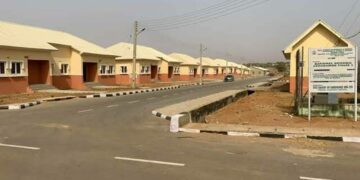Families, associates and admirers of the late historian and political thinker, Dr. Yusufu Bala Usman, have reflected on his legacy, lamenting Nigeria’s political, economic and social decline two decades after his passing.
They said the deceased would have been deeply disappointed by the state of the nation.
The reflections came during a symposium organised by the Yusufu Bala Usman Institute in Zaria to commemorate the 20th anniversary of his death.
Themed “History as Praxis: Yusufu Bala Usman 20 Years After,” the event was organised and hosted by the Yusufu Bala Usman Institute, Zaria, Kaduna State.
Among the prominent attendees were Prof. Attahiru Jega, Prof. Jerome Gefu, Dr. Iyorchia Ayu, Prof. Mike Kwanashie and Dr. Auwalu Anwar.
Others, including Prof. Wasilu Alli, Malam Abdullahi Mohammed, Prof. Chris Kwaja and Ambassador Abdu Zango, joined virtually.
A former member of the People’s Redemption Party (PRP) and close associate of Usman, Dr. Auwalu Anwar, recalled his deep commitment to ideology-driven politics.
“If he comes back today, he would definitely condemn what we now call political parties. They have become private ventures for power seekers, with little regard for the people. Bala would feel sad about the way politics is being played,” he said.
Ambassador Abdu Zango highlighted Usman’s role in shaping Nigeria’s early foreign policy, recalling his contribution to the late Gen. Murtala Mohammed’s famous 1976 address at the OAU Summit in Addis Ababa, where the phrase “Africa has come of age” was declared.
“He would be saddened by the derailment of Nigeria’s foreign policy in several areas,” Zango added.
The symposium also featured debates on the way forward. Many participants advocated for the establishment of a forum to promote Usman’s ideology across Nigeria’s socioeconomic and political landscape.
Others called for regular symposia to mentor young leaders to tackle the country’s challenges.
Dr Usman, who died on September 24, 2005, was known for his scholarship, political activism and strong advocacy for good governance.
His books and journals remain reference materials for researchers and students of history and politics in Nigeria and beyond.




